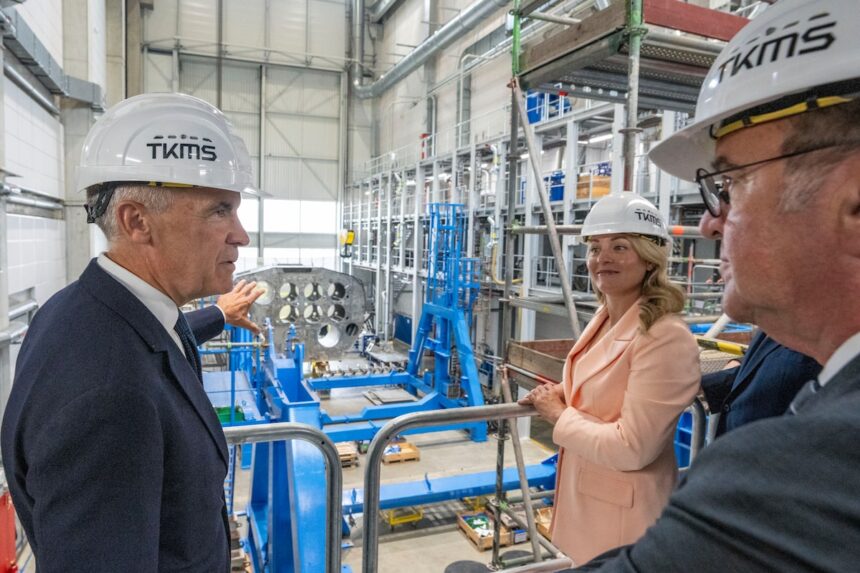In an unprecedented push to modernize Canada’s defence capabilities, Foreign Affairs Minister Mélanie Joly is advocating for the country’s financial institutions to play a more significant role in funding domestic defence manufacturers. This strategic pivot comes as global security concerns intensify and Canada seeks to strengthen its position within NATO while supporting Ukraine against Russian aggression.
“Canadian financial institutions have historically been hesitant to invest in defence,” Minister Joly stated during a recent address to industry stakeholders in Ottawa. “But the global security landscape has fundamentally changed. We need our banks and pension funds to recognize that investing in domestic defence production is not just good business—it’s essential for our national security.”
The minister’s call to action represents a significant shift in Canada’s approach to defence industry financing. Traditionally, Canadian banks and pension funds have maintained a cautious distance from defence-related investments, often citing ethical concerns and risk considerations. This hesitancy has created a financing gap that has hampered the growth of domestic manufacturers and left Canada more dependent on foreign suppliers for critical defence equipment.
According to recent economic data, Canada’s defence sector contributes approximately $10 billion annually to the economy and supports over 60,000 jobs. However, industry experts suggest these numbers could be substantially higher with improved access to capital.
The federal government appears ready to take concrete steps to facilitate this financial relationship. Sources within the Department of Finance indicate that the upcoming federal budget may include provisions to expand the mandate of the Business Development Bank of Canada (BDC) to specifically support defence industry financing. Such a move would mirror strategies employed by other NATO allies, including the United States and France, which have robust government-backed financing mechanisms for their defence sectors.
“We’re examining ways to de-risk investments in critical defence technologies,” a senior official at the Department of Innovation, Science and Economic Development confirmed. “The goal is to create financing vehicles that make these investments more attractive while ensuring they align with our broader security objectives.”
The government’s push comes amid growing recognition that Canada’s defence readiness faces significant challenges. A recent parliamentary committee report highlighted critical gaps in Canadian military equipment and called for increased domestic production capacity for everything from ammunition to sophisticated weapons systems.
Defence industry representatives have welcomed Joly’s comments. “This acknowledgment of the financing challenge is long overdue,” said Richard Thompson, CEO of the Canadian Defence Manufacturers Association. “Our members have world-class capabilities but have often been forced to look abroad for capital, sometimes resulting in intellectual property and production capacity leaving Canada.”
Not everyone is convinced, however. Several environmental and peace advocacy groups have expressed concerns about potentially diverting capital from green technology investments toward defence manufacturing. “We need to be careful about how we allocate financial resources,” said Patricia Moreau of the Canadian Peace Initiative. “There’s a real risk of undermining our climate commitments if we redirect significant investment toward defence production.”
The minister’s initiative also raises questions about Canada’s broader industrial policy. With the government simultaneously pursuing green technology development and critical minerals strategies, some economists wonder whether Canada has the investment capacity to add another capital-intensive priority.
As tensions in global hotspots continue to rise and NATO allies press Canada to meet its defence spending commitments, the pressure to find innovative financing solutions will only increase. Minister Joly’s intervention suggests that the government sees the financial sector as a critical partner in addressing this challenge.
As Canada navigates this complex terrain of national security, economic development, and ethical investment, a fundamental question emerges: Can we reconcile our traditional caution toward defence spending with the stark realities of an increasingly unstable world order?










